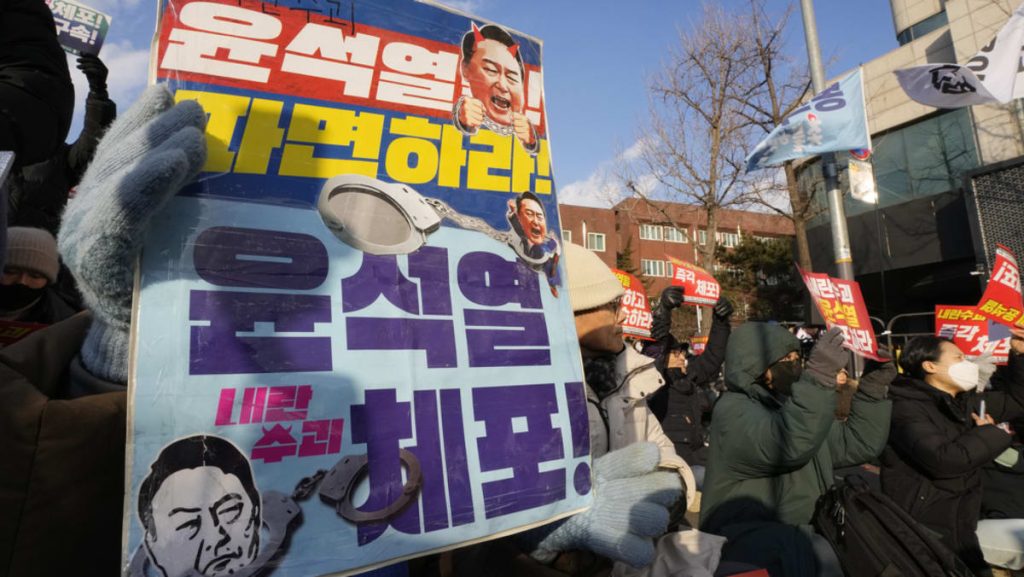The political landscape of South Korea was dramatically reshaped in December 1987, culminating in the impeachment of President Chun Doo-hwan, marking a pivotal moment in the nation’s transition towards democracy. The seeds of this momentous event were sown in the preceding months, amidst escalating public discontent with Chun’s authoritarian rule and his staunch refusal to implement democratic reforms. The arrest of Kim Yong-hyun, the recently resigned defense minister, on December 8th for his involvement in the declaration of martial law, further fueled the flames of opposition. This arrest, coupled with the resignation of the interior minister, underscored the growing instability and division within the government itself. The main opposition party, capitalizing on the momentum of these events, announced its intention to pursue another impeachment attempt against President Chun, scheduled for December 14th.
The tension ratcheted up further on December 9th when the justice ministry imposed a travel ban on Roh Tae-woo, a key figure in Chun’s administration and a potential successor. This move was widely interpreted as an attempt to prevent Roh from fleeing the country amidst the escalating political crisis. Roh, like Chun, was implicated in various human rights abuses and corruption scandals, and the travel ban served to further isolate the administration and amplify public calls for accountability. Chun’s defiant response on December 12th, blaming the opposition for creating a “national crisis,” only served to solidify the resolve of his opponents and further polarize the nation. His refusal to acknowledge the widespread public discontent and his attempts to shift blame onto the opposition underscored the deep chasm that existed between the government and the people.
The impeachment vote on December 14th proved to be a watershed moment. In a decisive demonstration of parliamentary power, 204 out of 300 lawmakers voted in favor of impeaching Chun, exceeding the two-thirds majority required for the motion to pass. The vote effectively suspended Chun from his presidential duties, pending a final decision by the Constitutional Court. This suspension marked a significant victory for the pro-democracy movement and signaled a dramatic shift in the balance of power. The vote was not merely a condemnation of Chun’s individual actions but a rejection of his authoritarian regime and a resounding affirmation of the people’s desire for democratic change.
The impeachment vote triggered an outpouring of jubilation across South Korea. Tens of thousands of demonstrators gathered outside the parliament building, celebrating the momentous decision. The scenes of celebration reflected the culmination of years of struggle against authoritarian rule, marked by protests, crackdowns, and the unwavering determination of pro-democracy activists. The impeachment was seen as a triumph of the people’s will and a beacon of hope for a more democratic future. The appointment of Prime Minister Han Duck-soo as acting leader marked the beginning of a transitional period, with the nation awaiting the final verdict of the Constitutional Court.
While the impeachment of Chun Doo-hwan was a momentous event, it represented just one stage in the ongoing struggle for democracy in South Korea. The Constitutional Court had six months to deliberate on the impeachment vote, creating a period of uncertainty and anticipation. The court’s decision would ultimately determine the fate of Chun and the future direction of the country. The political ramifications of the impeachment extended beyond Chun himself, impacting the power dynamics within the ruling party and the broader political landscape.
The events of December 1987 in South Korea underscore the complex interplay of political maneuvering, public pressure, and institutional processes in the pursuit of democratic change. The impeachment of Chun Doo-hwan, while a dramatic and decisive moment, was the culmination of a long and arduous struggle. The demonstrations, the resignations, the arrests, and the impeachment vote itself all contributed to a narrative of escalating tension and ultimately, a decisive shift in the balance of power. The scenes of jubilation following the impeachment vote served as a poignant reminder of the power of collective action and the enduring human desire for freedom and self-determination. The subsequent months would prove crucial in shaping the future of South Korea as it navigated the transition towards a more democratic society.

